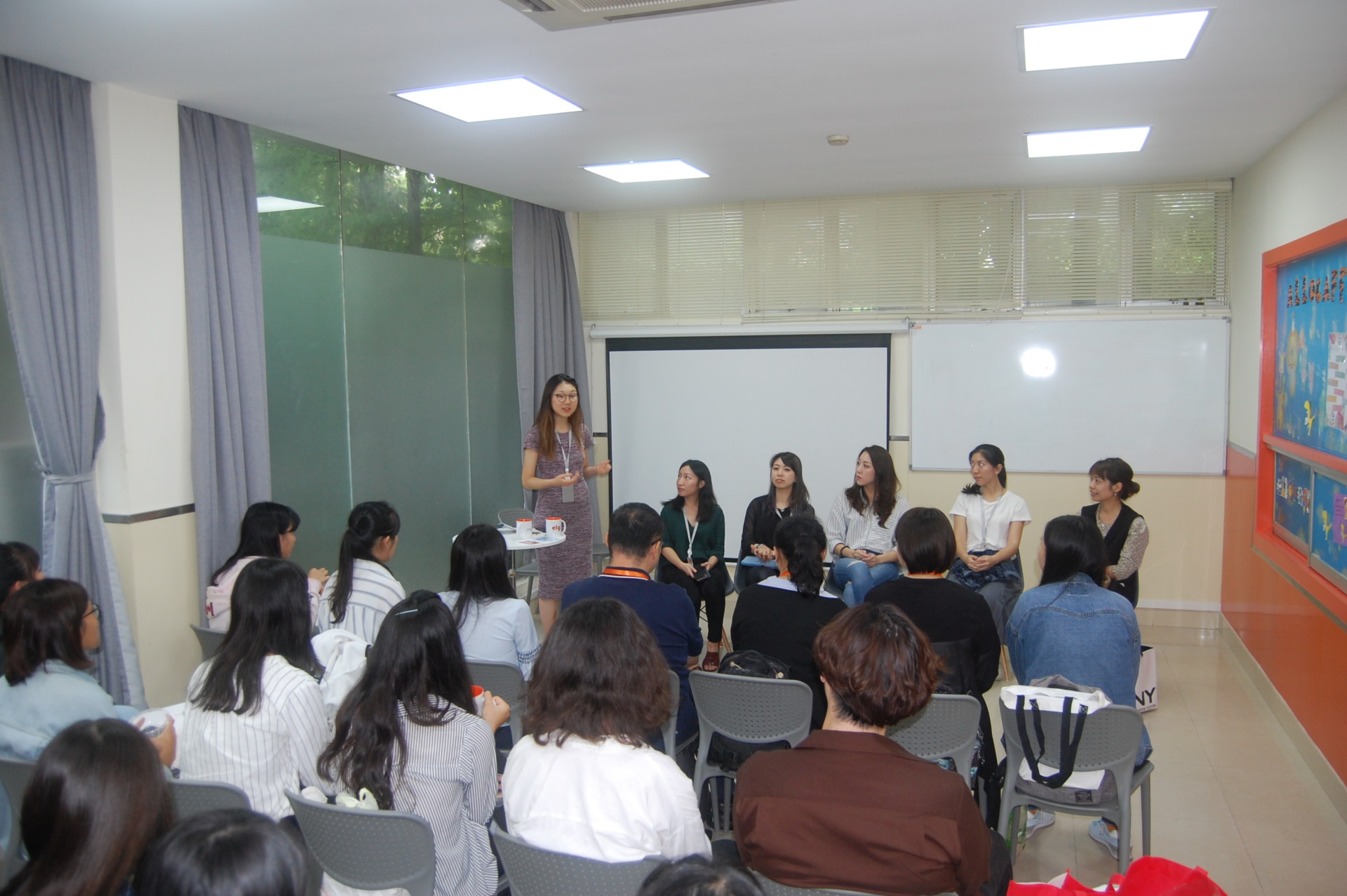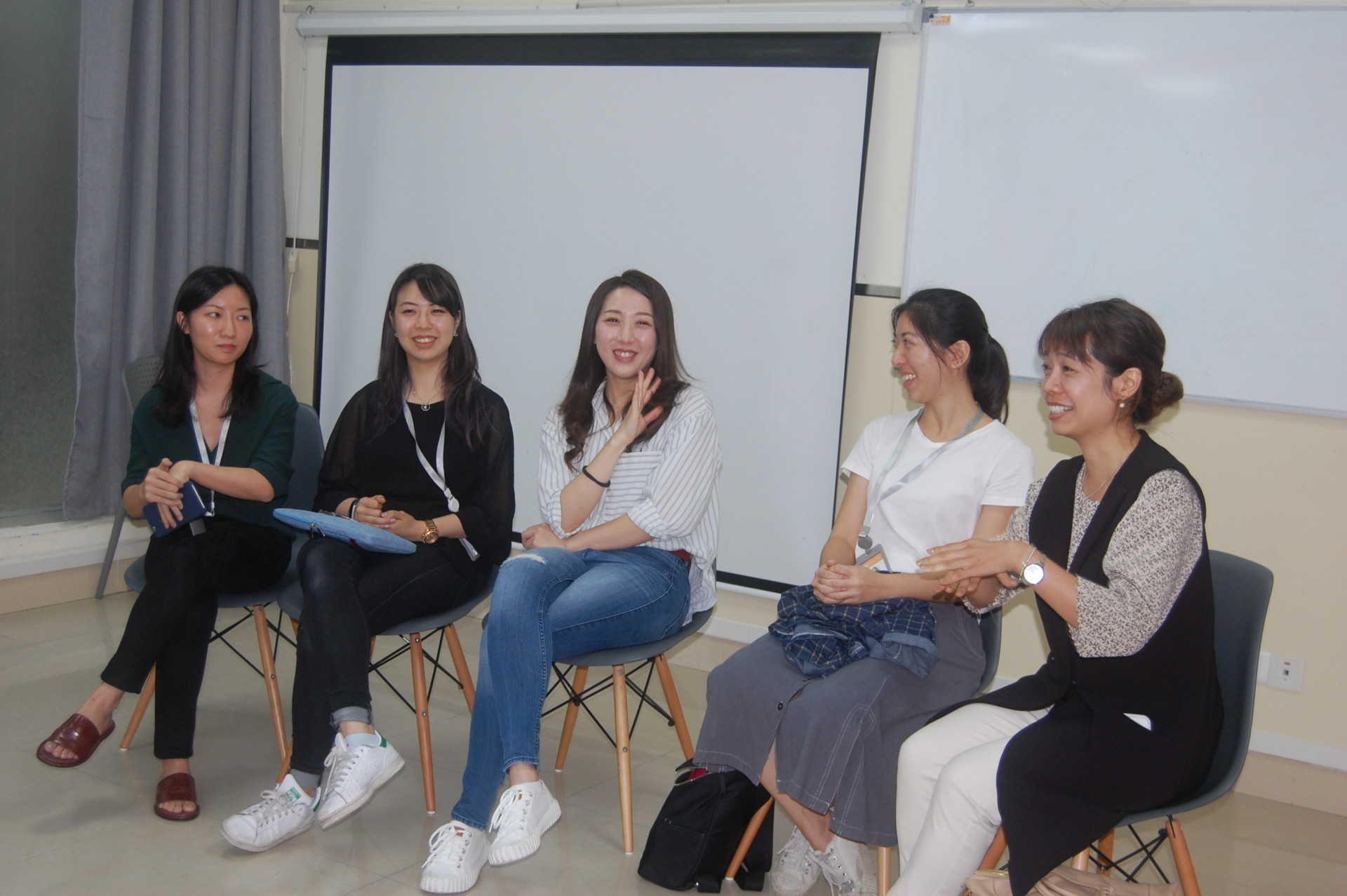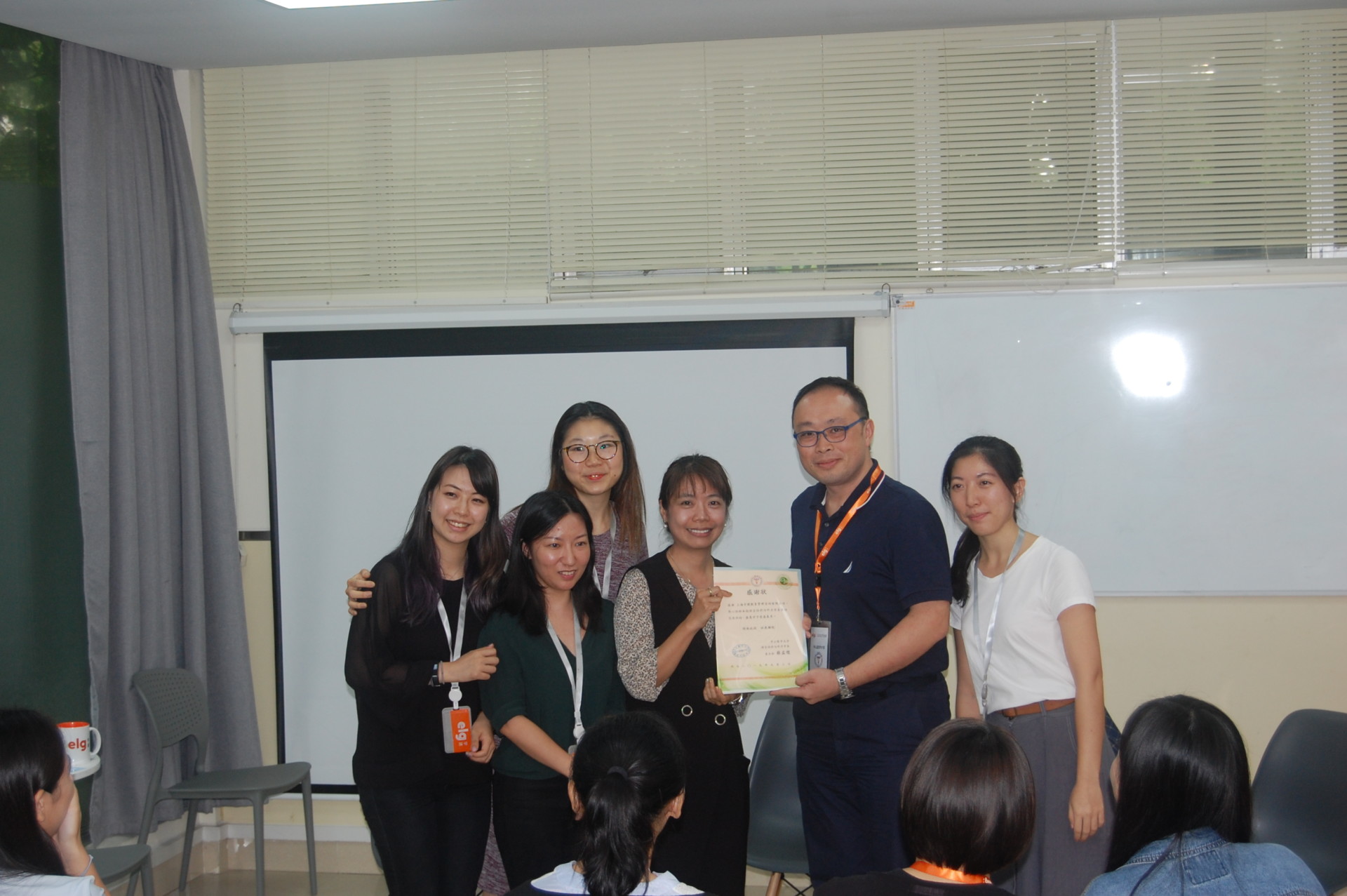
(Jing Chiu, Tiffany Chen, Debbie Lee, Jojo Liang, Jean Huang, Phoebe Jan)
What’s it like for a Taiwanese speech-language pathologist or occupational therapist to work and live in Shanghai? That’s what brought Taiwan Chung Shan Medical University professor and students to Shanghai. But why ELG? ELG is proud to attract specialists from all over the world, and we are lucky to already have six Taiwanese specialists as part of the team.
As part of Chung Shan Medical University’s visit, ELG arranged a special panel, with five of our Taiwanese specialists, for Professor Tsai and students. Both the specialists and our Taiwanese guests were excited to meet each other.

The first question, an area our Taiwanese guests were most curious about, ‘What exactly prompted these five specialists’ move to Shanghai?’. Three common themes showed up in the responses from our specialists. The first was ‘Needs’. Tiffany Chen, speech-language pathologist, emphasized the huge gap between the needs for speech and occupational therapy and lack of locally-trained specialists in mainland China. “What helped you to get a job in Shanghai?” Professor Tsai pressed, which led to the second implied theme, that was, ‘Network’. Both Tiffany Chen and Debbie Lee, occupational therapist learned about job opportunities in Shanghai and ELG through their specialist friends who had already been working in Shanghai. ‘What else?’ students were still curious. It is the ‘Sense of Adventure’. Jean Huang, program facilitator, shared with the students, “back then, I really didn’t overthink it. I was young and I had no boyfriend or family of my own, so, I thought to myself, why not go for it!”.
‘Why ELG?’ – after spending time at ELG, Professor Tsai and students wanted to hear more about the workplace from the viewpoint of ELG’s Taiwanese specialists. Jean Huang shared that she liked that ELG supervisors have a high level of respect for specialists, and trust their expertise. ELG is supportive rather than authoritarian. She added that, all ELG specialist colleagues are cooperative rather than unnecessarily competing with each other. Moreover, all specialists agreed that they like that ELG really makes an effort to provide a top-notch service and tailor the service to each child’s individual needs. As Jojo Liang, occupational therapist put it, “Each child has an IEP (Individual Education Plan), which means we design our therapy plans around the individual needs of each child.” Finally, the ELG Taiwanese specialists concluded that their work at ELG is what keeps them in Shanghai despite all the difficulties living far from home.

As third-year speech language pathology students, the group has almost all the foundational theoretical background, and they were curious about the differences in the practice between Taiwan and mainland China. Jing Chiu, occupational therapist and expressive arts therapist, brought up the difference in parenting culture. She said that parents in mainland China focus more on academic achievement, with less thought given to the child’s social life. As a specialist and advocate for the overall well-being of the child, Jing believes educating parents is also important. Jing shared with students that specialists need to understand the societal culture that is present among families and parents; therefore, when educating the family, a goal is also to help gradually change the whole of society’s view on speech-language pathology and special needs in general.
ELG specialists also shared many anecdotes around their experience in Shanghai regarding food and language differences. Our Taiwanese guests enjoyed the honest information shared by the Taiwanese specialists at ELG. The final piece of advice, and the most sincere: be open-minded. Trying new things brings new experiences, and greater opportunities to learn.

